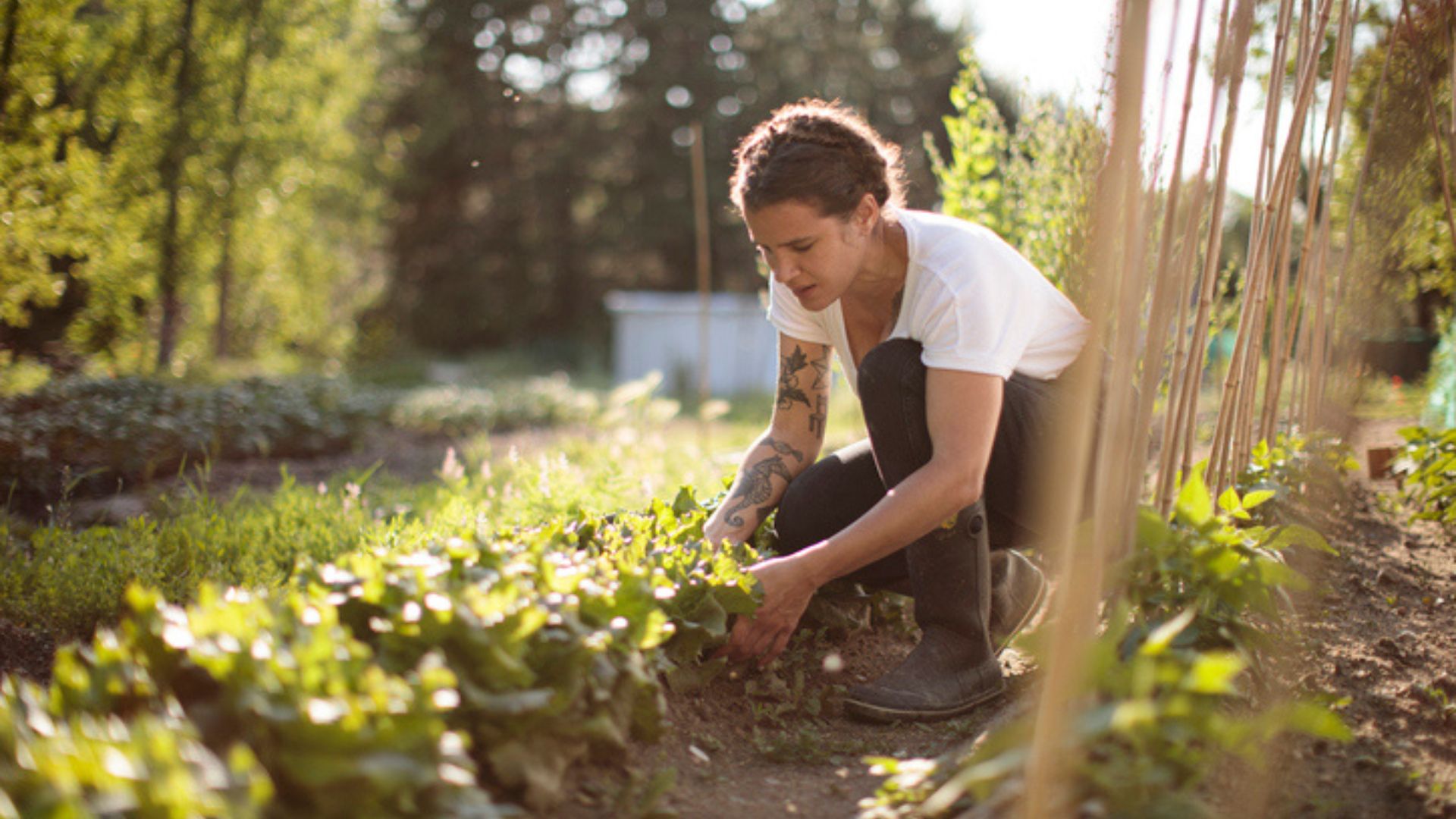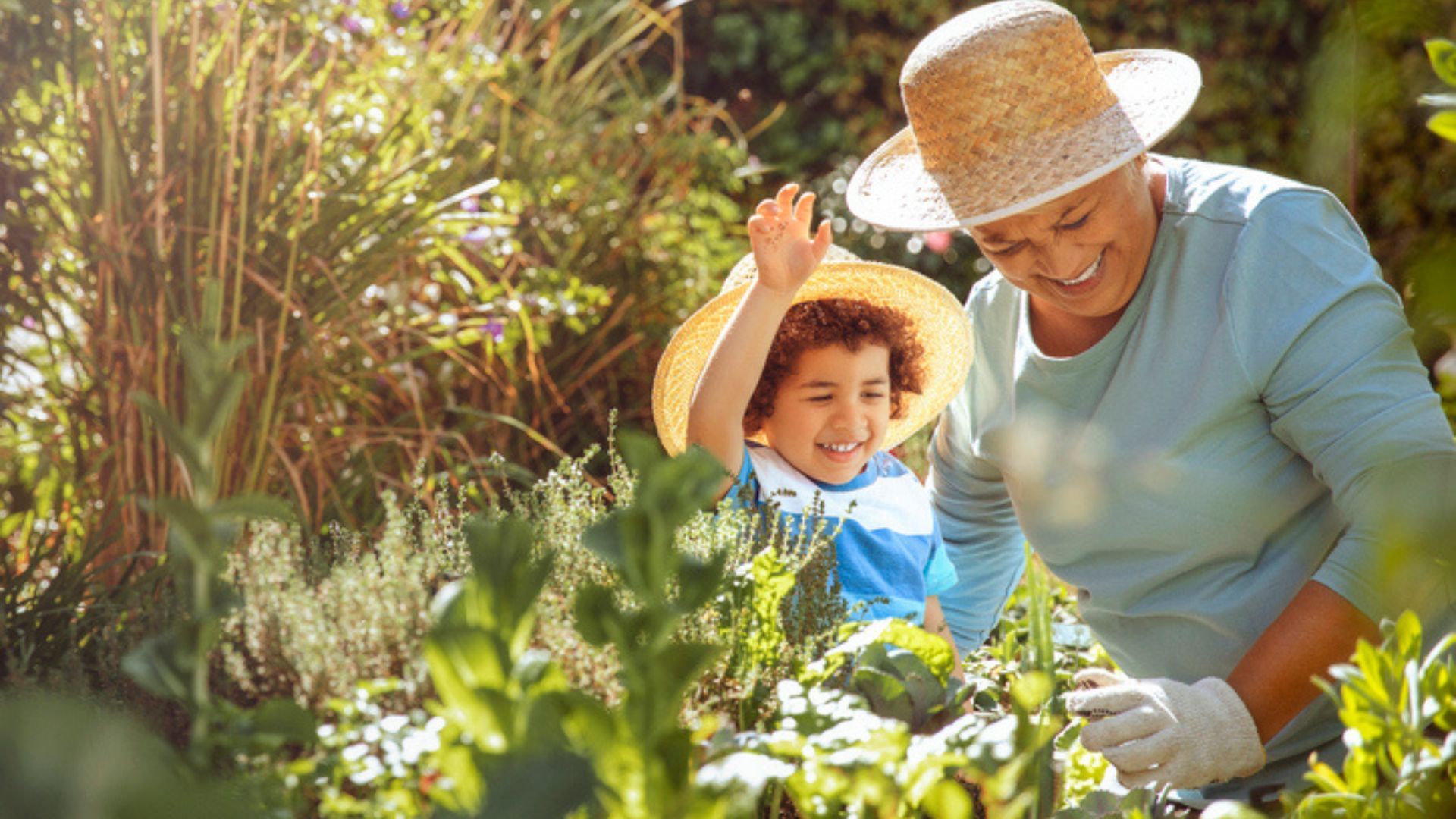This one outdoor activity could be the key to unlocking better sleep this summer
Green fingers and quality rest — experts explain how gardening helps you sleep better

From avoiding caffeine late in the day to getting enough sunlight, we know there are things we should do by day to help get a good sleep by night. But what if we told you there's a hobby you can pick up this summer that will boost your chance of getting good sleep night after night?
The hobby in question? Gardening. Giving you fresh air, vitamin D (from sunlight) and movement, it makes the perfect recipe for quality sleep. A nationwide study of over 62,000 US adults in 2024 found that gardening was associated with lower levels of sleep complaints.
So, besides sleeping on the best mattress for your sleep style and body type, becoming more green-fingered may be a powerful tool to help optimize our rest. Below, we speak to Michael Griffiths, known online as the Mediterranean Gardener, and Dr. Joseph Dzierzewski, lead researcher at the National Sleep Foundation, about exactly how more gardening can equate to better sleep.
5 reasons gardening helps you sleep better
Gardening has a raft of benefits. Here are the reasons why it is such a great sleep-boosting activity…
1. Sunlight exposure
"Getting bright light exposure is one of the most important factors when it comes to regulating our circadian rhythm," says Dr. Dzierzewski, "keeping our body’s natural sleep-wake cycle in sync."
Light is a key driver in our body's internal clock. You need appropriate exposure to daylight to regulate and reset sleep-wake hormone cycles so your body remains "on time".
When exposed to daylight, your brain will suppress melatonin, the hormone that makes us feel sleepy, and subsequently releases it in darkness. This means you fall asleep and feel alert at the right times of day.

When you've got plants to attend to, you're likely to be getting enough daylight to keep your circadian cycle in check, meaning you'll be more likely to fall asleep fast at night and wake up more easily in the morning.
2. Daily exercise
Regular exercise improves sleep quality by reducing stress, regulating energy levels and promoting the release of hormones that aid sleep.
So it's no surprise that experts recommend exercise during the day to sleep well night. In fact, John Hopkins Medicine notes that 30 minutes of moderate-intensity exercise can help improve sleep the same night.
Often involving plenty of digging, walking and lifting, gardening is an active hobby, helping you get in this daily movement without carving out time specifically for ‘exercise’. "Digging, weeding, watering etc all adds up to decent physical activity, which helps tire you out in a good way by bedtime," says Griffiths.
An added bonus is that pottering about the garden is far more enjoyable than staring at treadmill screen.
3. Vitamin D
Vitamin D is produced by the body when we're exposed to sunlight. It is an essential vitamin for strong bones and, as more recently acknowledged, strong ZZZs.
Studies in the Sleep Medicine journal link vitamin D deficiency with poor sleep quality and reduced sleep duration.

Yes, that's right, soaking up the sun can bring you better sleep. And what better way to do it than while tending to your flowers and plants?
4. Natural stress relief
Stress is a common sleep disruptor. Yet, as Griffiths puts it, "Gardening is chill. It gives your brain a break, slows things down, and helps take your mind off whatever’s been stressing you out."
Dr. Dzierzewski explains: "For many people, [gardening] can reduce stress by keeping people focused on the present. We know stress can have a negative impact sleep quality, so lowering stress levels through relaxing activities is one potential path to better sleep."
A 2024 meta-analysis of 40 studies found a positive impact of gardening activities on mental health outcomes, including stress, and depression and anxiety, which are both associated with poor sleep.
Hence, the emergence of 'horticultural therapy', which refers to the practice of using gardening and plants to improve a person's physical and mental health. And, with that, comes more peaceful sleep.
5. Plant your sleep aids
Get a double-hit of sleep benefits by growing sleep-friendly edible and aromatic plants. Which plants does the Mediterranean Gardener recommend?
He says: "Chamomile is a classic — its little daisy-like flowers make a chill, calming tea that’s perfect before bed.
"Lemon balm smells fresh and lemony, and you can toss its leaves in tea, desserts, or salads and it’s great for calming your nerves and helping you relax.

"Lavender is worth having around just for that relaxing scent that helps you wind down. They’re pretty easy to grow and can be your natural go-to for a better night’s sleep."
What's more, new research published in the Journal of the National Sleep Foundation found that eating more fruit and vegetables, both of which you can grow in your garden, can lead to less disrupted sleep the very same night.
Foods you could consider planting for their sleep-inducing benefits (thanks to their high levels of melatonin), include peppers, mushrooms, legumes and some berries, while dark leafy greens are rich sources of magnesium (which supports deep sleep) and calcium (which helps with melatonin production).
Tips for gardening your way to better sleep
- Garden earlier in the day
- Practise gardening multiple times a week for the best sleep benefits
- Avoid distractions and be present with your plants
Dr. Dzierzewski recommends gardening multiple times a week for the best sleep results, and preferably in the morning for the "added benefit of exposure to bright sunlight which helps regulate your circadian rhythm."
Griffiths adds: "If you’ve got grow lights or the garden’s lit up, nighttime gardening can mess with your sleep. All that artificial light can confuse your body into thinking it’s not time to wind down yet."
To benefit from the stress relief it has to offer, it's important to switch off while gardening to focus on the task in hand.
Dr. Dzierzewski says: "Being mindful and present in the moment while gardening is a good strategy to combat stress, which has many benefits including better sleep."

Eve is a sleep tech product tester and writer at Tom's Guide, covering everything from smart beds and sleep trackers, to sleep earbuds and sunrise alarm clocks. Eve is a PPA-accredited journalist with an MA in Magazine Journalism, and has four years’ experience writing features and news. In her role as Sleep Tech Product Tester and Writer for Tom's Guide, Eve is constantly trying out and reviewing the latest sleep products from brands such as Apple, Garmin, Whoop, Hatch, Sleep Number, Eight Sleep, and Oura. A fitness enthusiast who completed the London Marathon earlier this year, Eve loves exploring the relationship between good sleep, overall health, and physical performance, and how great sleep tech can make that relationship even better.
You must confirm your public display name before commenting
Please logout and then login again, you will then be prompted to enter your display name.
 Club Benefits
Club Benefits





